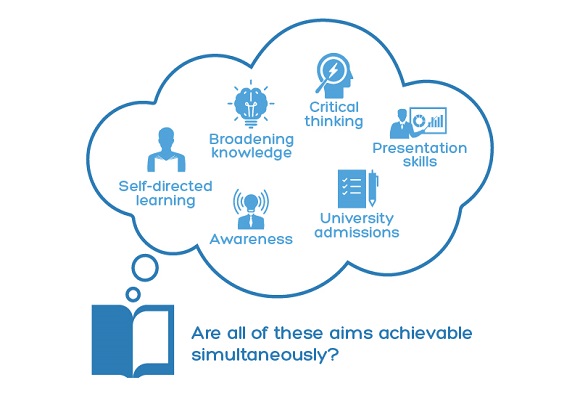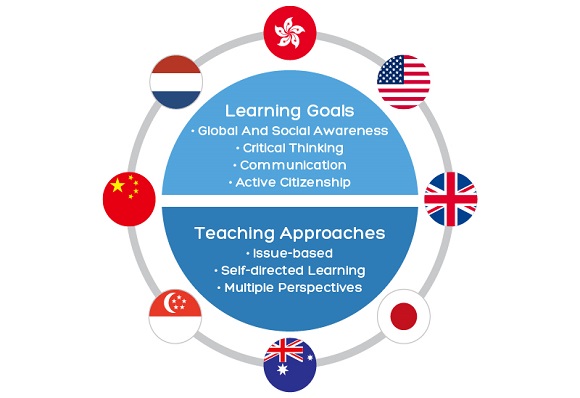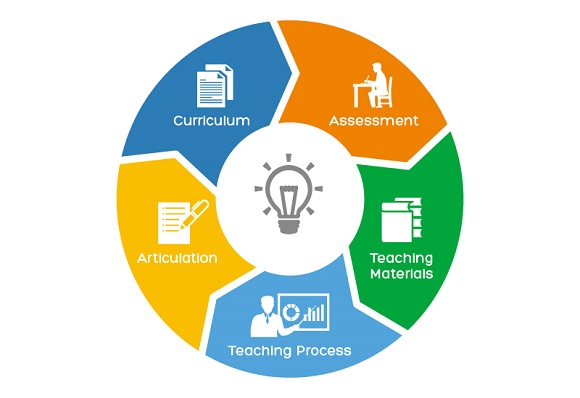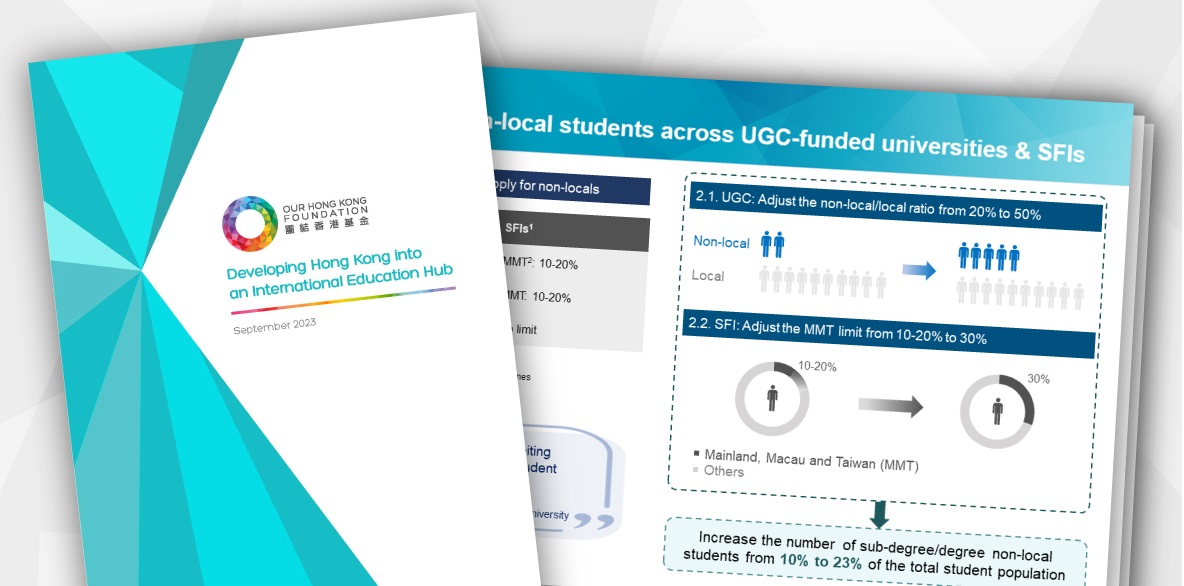
Education and Youth | Policy Research Series
Developing Hong Kong into an International Education Hub
[Report (Read Flipbook)]
[Full Content (Read Flipbook)]
[Report (Download PDF)]
[Full Content (Download PDF)]
Our Hong Kong Foundation (OHKF) released its latest policy advocacy report entitled Developing Hong Kong into an International Education Hub. The report emphasises that building an education hub is a key step to grooming future talents for new industry planning in Hong Kong, especially in the midst of a global talent war.
As Hong Kong faces the challenges of a shrinking labour force and an aging population, it is critical to attract top talents through providing world-class quality education. In fact, countries around the world, such as the United Kingdom, the United States, Australia, Korea, and Japan, have developed national policies to build its education hub and increase non-local student intake. This does not only increase talent to support countries’ sustainable development but also propel socio-economic growth through tuition and other value-added services. In 2020, education services contributed to a significant portion of GDP in places like Australia (5.2%), the United Kingdom (6.3%), and the United States (5.6%), far higher than that of Hong Kong (1.4%).

Hong Kong currently has a golden opportunity to position itself as an international education hub. Having five top-100 universities globally, Hong Kong has been an attractive place for students from mainland China and overseas. Even so, admission rates for students from mainland China are only around 5-10% across tertiary programmes offered by University Grants Committee (UGC)-funded universities and self-financing institutions (SFIs), in some cases even lower. The current geopolitical climate also presents an opportunity to diversify the student sources by targeting top talents from ASEAN and Belt & Road countries.
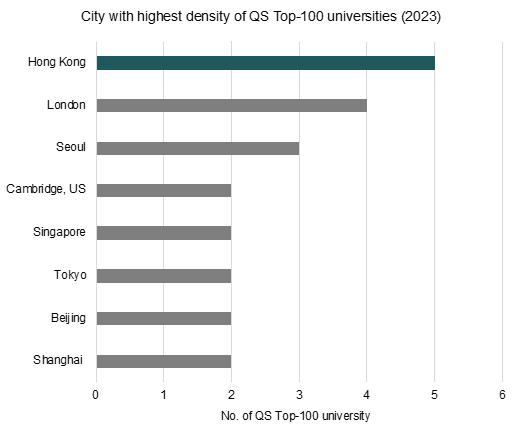
To better leverage these opportunities, OHKF proposes the below policy framework with 9 policy recommendations to promote Hong Kong as the study destination of choice for students from all over the world. Students come to Hong Kong primarily to progress their studies, prepare themselves for future work, and gain international exposure. As such, promoting mutual recognition between mainland and Hong Kong qualifications and raising the regulatory cap for non-local students would remove hurdles for articulation, while fostering school-industry partnership with emerging industries and deepening synergies with the GBA would offer students augmented work readiness and international exposure.
Initiatives to bolster Hong Kong’s attractiveness must be supported by measures to enhance the study experience in Hong Kong. Living conditions, financial hurdles, and job opportunities upon graduation are all critical for talent attraction and retention.

Collectively, OHKF hopes these measures will boost Hong Kong as a preferred location for non-local students, enhance our status as an international education hub, and ultimately contribute to our sustainable development.
|
[Full Report (Read Flipbook)]
[Executive Summary (Read Flipbook)]
[Full Report (Download PDF)]
[Executive Summary (Download PDF)]
Our Hong Kong Foundation has published its latest Education policy research report, “Preparing for the 21st Century Globally Competitive Workforce—Industry-led Standards of Applied Education and Lifelong Learning.”
The international competitiveness of Hong Kong’s youth has dwindled in the past few years. Confronted with the dual threats of Industry 4.0 and intensifying regional competition, Hong Kong’s education system must ensure that learners of all backgrounds are able to receive the education they need, in order to secure the city’s leading economic status in the future.
The IMD World Talent Ranking 2020 outlines that Hong Kong has been remiss in its investment and development of talents; its talent competitiveness ranking dropped from 10th in 2016 to 14th, while during the same period of time, Singapore’s ranking rose from 15th to 9th. This slip in talent competitiveness can be attributed to the discrepancy between human capital output from the education system and the in-demand skills required by employers: a research survey by the Federation of Hong Kong Industries shows that 58% of Hong Kong enterprises currently upgrading and restructuring their operations regard the lack of suitable local talents as their biggest obstacle.
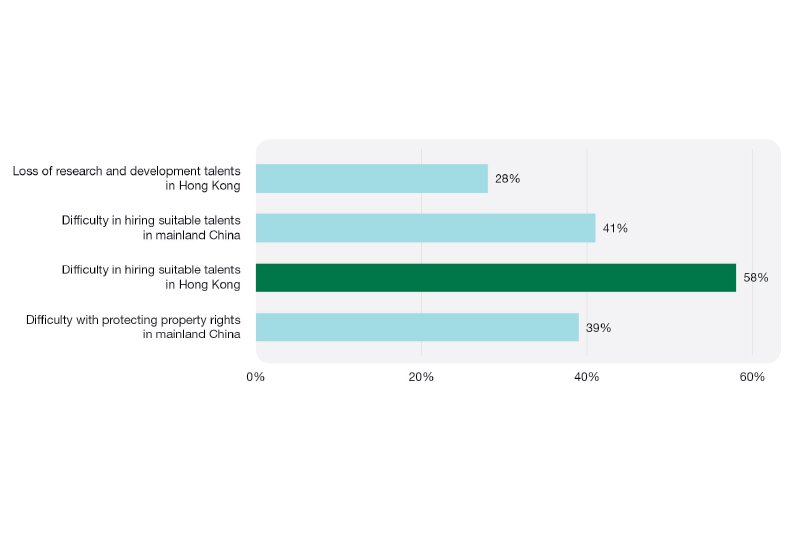
In order to solve manpower shortages in the newest generation, countries around the world reached a consensus on the need to revamp their education systems; for instance, China’s "Outline of the Fourteenth Five-Year Plan for the National Economic and Social Development and the Long-Range Objectives Through the Year 2035" has summarised its commitment to invest in human capital, deepen industry school collaborations, and cultivate technically skilled talents.
In sharp contrast, Hong Kong’s education system has yet to fully support talent development, which hinders the progress of both society and the economy. As countries around the world scramble to bolster lifelong learning and help in-service practitioners upskill and reskill, Hong Kong has yet been unable to change public attitudes regarding continuing education. If Hong Kong is to create a work-study overpass that can integrate academic, applied, and industry qualifications, citizens must no longer view continuing education as merely a hobby.
Hong Kong’s participation rate in continuing education has stalled at 20%, which is significantly lower than Singapore’s 49%. The Government spends only 0.5% of its total education expenditure on continuing education, which is only one-tenth of that averaged by countries like the United Kingdom, Germany, and Singapore To support Hong Kong’s sustainable development as a knowledge-based economy and cultivate talents equipped with tomorrow’s skills, our society needs to provide everyone with flexible and versatile continuing education opportunities.
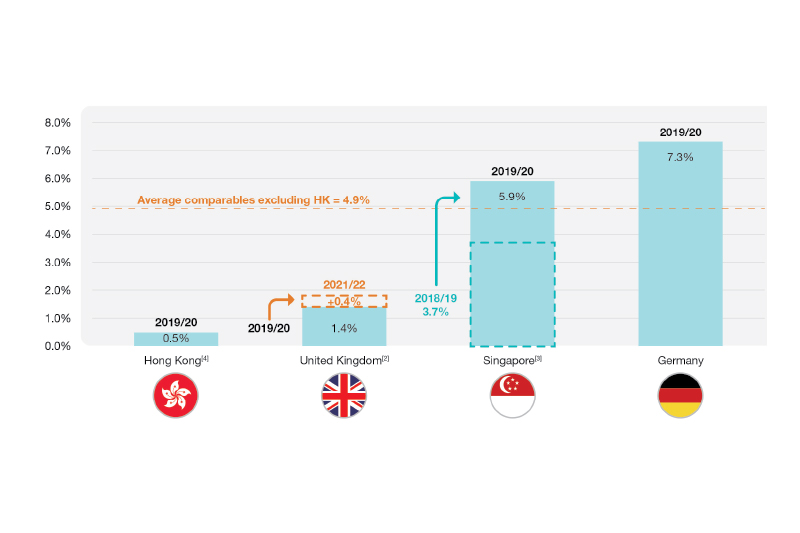
OHKF hopes to shatter traditional perceptions of and approaches towards education, and explore how to further integrate academia and employers, build progression pathways that fully support study and employment, and develop policies that promote the development of diverse talents. This report puts forth 14 policy recommendations from the three interlinked fields of governance, accreditation, and funding. Components include: establishing a policy blueprint to implement industry led lifelong education that bridges economic, manpower, and skills development; offering diverse and flexible progression pathways through an industry integrated accreditation system; and building a targeted and future oriented funding mechanism to support lifelong learning for all.
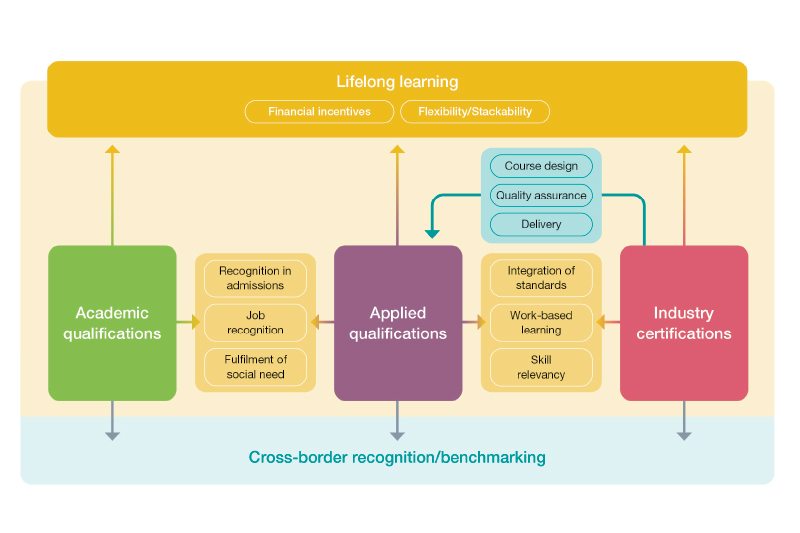
|
